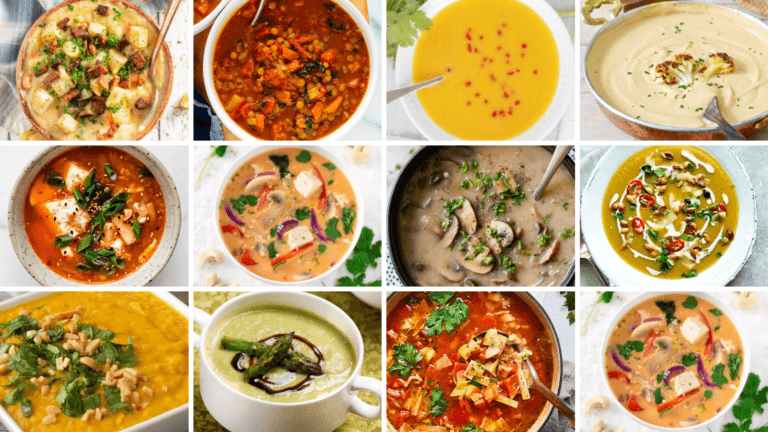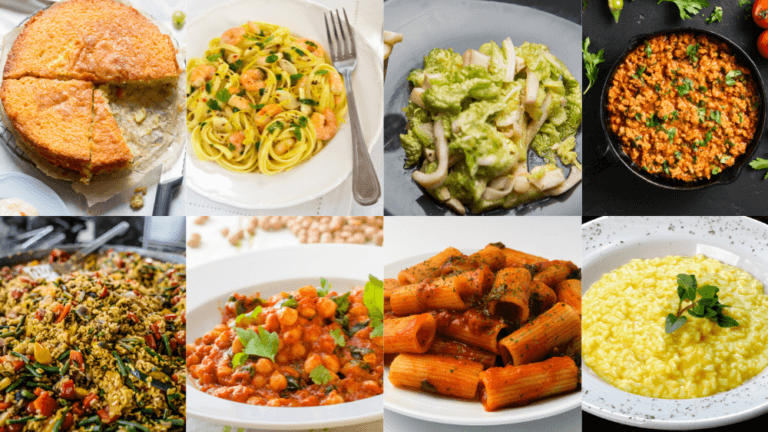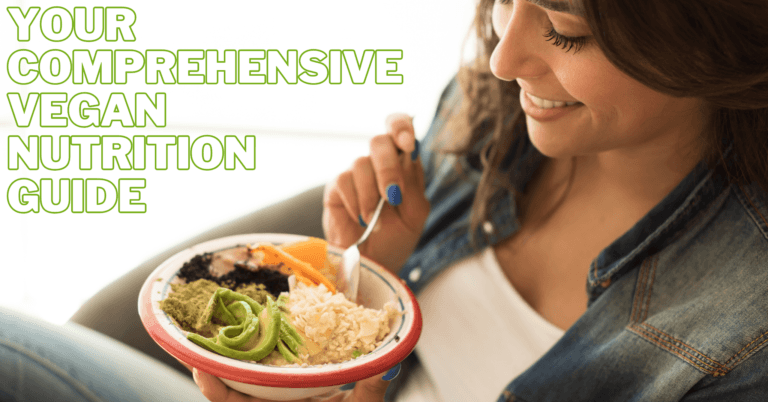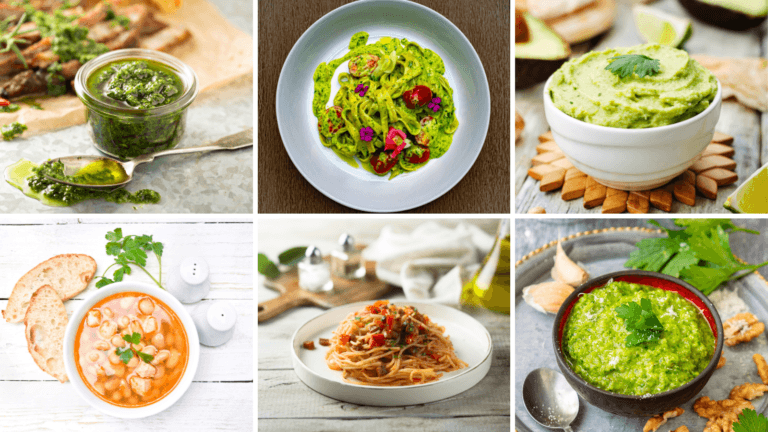Vegan Burger Nutrition Facts Explained
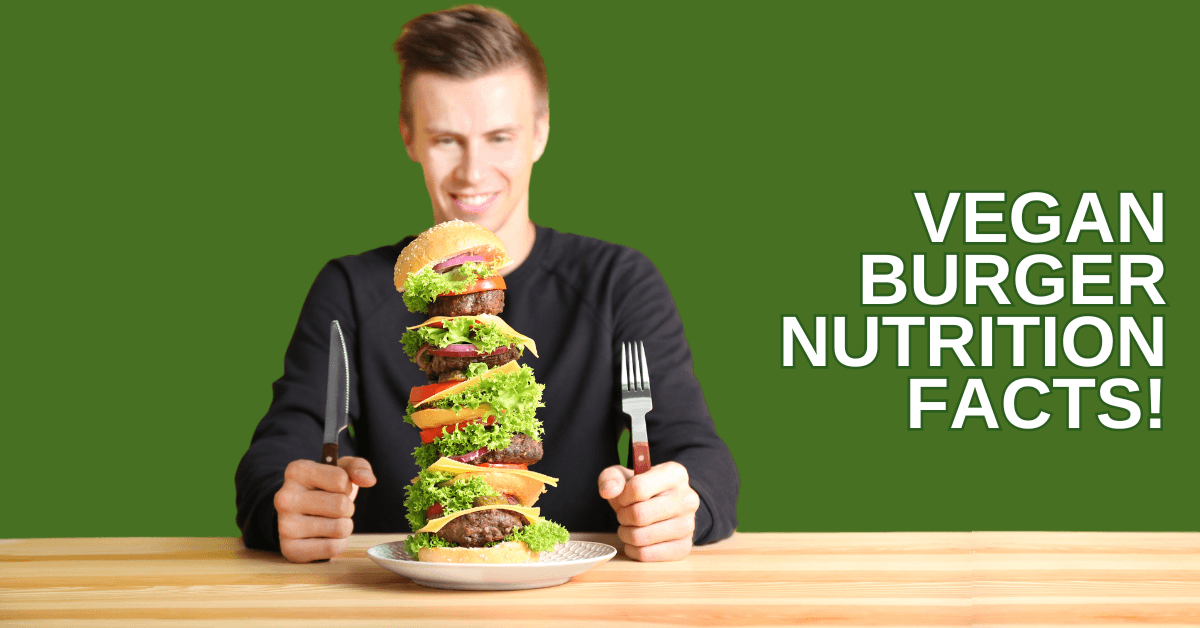
Vegan Burger Nutrition Facts Explained
As the world increasingly embraces plant-based diets for health, environmental, and ethical reasons, the popularity of vegan burgers has surged.
If you want to reduce your consumption of animal products without compromising flavour or nutrition, these meatless substitutes are a tasty and environmentally friendly choice.
This thorough overview explores the protein composition, vital vitamins and minerals, nutritional data, and possible health benefits of vegan burgers.
Knowing the nutritional profile of vegan burgers is crucial for making educated dietary decisions, regardless of your level of experience with plant-based foods or just your curiosity about adding more to your diet.
What Is A Vegan Burger?
A vegan burger is made completely of plant ingredients and is a plant-based substitute for typical animal burgers.
Vegetables, legumes, grains, and plant-based protein sources like soy, peas, or beans are commonly used in vegan burgers instead of animal-derived proteins like beef, pork, or chicken.
These components are frequently seasoned and moulded into patties that can be pan-fried, baked, or grilled to resemble meat in texture and flavour.
Vegan burgers are a cruelty-free and environmentally responsible choice for individuals who want to consume fewer animal products while relishing the delicious taste of a traditional burger.
What Are The Vegan Burger Nutrition Facts?
Here is a typical breakdown of the nutrition facts for a homemade vegan burger (based on a 100-gram serving):
- Calories: ~200 calories
- Protein: ~15 grams
- Carbohydrates: ~20 grams
- Dietary fibre: ~5 grams
- Total fat: ~8 grams
- Saturated fat: Less than 1 gram
- Unsaturated fat: ~7 grams
- Sodium: ~300 milligrams
- Iron: ~3 milligrams
- Calcium: ~100 milligrams
- Vitamin C: ~10 milligrams
- Vitamin A: ~50 micrograms
- Vitamin B12: Not found in large quantities, though this can change based on the components utilized.
A vegan burger's precise nutritional information can change based on the ingredients and Cook method. Still, the following are some common dietary ingredients you could find in a vegan burger:
1. Protein
Vegan burgers contain 10 to 20 grams of protein per serving, and they derive protein from ingredients like beans, lentils, tofu, tempeh, or peas.
These plant-based sources provide essential amino acids, making vegan burgers a nutritious alternative for those seeking protein-rich meat substitutes in their diets.
2. Carbohydrates
Vegan burgers feature complex carbohydrates from whole grains such as quinoa, oats, or brown rice, which supply energy and fibre.
With carbohydrate content typically falling between 20 and 40 grams per serving, these burgers fuel the body, promote digestive health, and provide a satisfying texture.
3. Fibre
Vegan burgers are fibre-rich, with plant-based ingredients like vegetables, legumes, and whole grains.
A serving contains approximately 5 to 10 grams of fibre, which promotes digestive regularity, supports heart health, and contributes to a feeling of fullness. Thus, vegan burgers are a nutritious choice for overall well-being.
4. Fat
Vegan burgers often feature healthy fats sourced from nuts, seeds, avocado, or coconut oil, contributing to their total fat content, which typically falls between 5 to 15 grams per serving.
These fats provide the burger with a deep, fulfilling flavour, boost heart and brain health, and supply vital fatty acids, all of which improve the burger's nutritional profile overall.
5. Vitamins And Minerals
Depending on the ingredients used, vegan burgers can provide abundant important vitamins and minerals, such as iron, calcium, vitamin C, vitamin K, and other B vitamins.
Leafy greens, legumes, nuts, and seeds contribute to these nutrients, promoting overall health and vitality in a plant-based diet.
6. Sodium
Sodium content in vegan burgers can fluctuate based on the recipe and added seasonings. Commercially prepared options may contain moderate to high sodium for flavour enhancement and preservation.
Monitoring sodium consumption when following a plant-based diet is critical, particularly for those with dietary limitations or high blood pressure concerns.
7. Calories
The calorie content of a vegan burger can significantly differ based on factors such as size, ingredients, and cooking methods. On average, a single serving typically ranges from 150 to 300 calories.
However, larger portions or burgers with higher-fat ingredients may contain more calories, while smaller, lighter options may have fewer calories, offering flexibility for various dietary needs.
Health Benefits Of Vegan Burgers
When made with wholesome ingredients, vegan burgers can offer several health benefits. Opting for homemade or carefully selected store-bought vegan burgers made with whole, minimally processed ingredients can maximize their nutritional value.
However, it's essential to note that not all vegan burgers are created equal. Some commercially available options may contain high sodium levels, preservatives, or other additives, which can diminish their health benefits.
1. Nutrient-Rich
Vegan burgers are nutrient powerhouses, typically crafted from wholesome ingredients like beans, lentils, quinoa, and various vegetables.
These plant-based components offer many essential nutrients vital for overall health. Beans and lentils contribute high protein, fibre, and micronutrients, while quinoa provides a complete protein source and important minerals like iron and magnesium.
Moreover, vegetables such as spinach, mushrooms, and bell peppers infuse the burgers with vitamins, antioxidants, and additional fibre.
This nutrient-dense composition satisfies hunger, supports bodily functions, promotes digestion, and fortifies the immune system, ensuring a well-rounded and nourishing meal.
2. Lower In Saturated Fat
Vegan burgers stand out from their meat counterparts due to their minimal saturated fat content, a characteristic that can significantly benefit heart health.
Unlike traditional beef burgers, which are often laden with saturated fats linked to elevated cholesterol levels and increased risk of heart disease, vegan burgers are crafted from plant-based ingredients that are naturally low in or devoid of saturated fat.
By consuming foods low in saturated fat, individuals can help maintain healthy cholesterol levels, support cardiovascular function, and mitigate the risk of heart disease.
Embracing vegan burgers as part of a balanced diet underscores a heart-healthy approach to eating, promoting overall well-being and longevity.
3. Reduced Risk Of Chronic Diseases
Plant-based diets, which often feature vegan burgers as a staple, have garnered attention for their potential to lower the risk of chronic diseases.
Research suggests that adopting plant-centric eating patterns can improve health outcomes, including reduced incidence of heart disease, type 2 diabetes, and certain cancers.
The abundance of fibre, antioxidants, and phytonutrients in plant foods, including vegan burgers made from legumes, grains, and vegetables, may play a key role in disease prevention.
By prioritizing plant-based options like vegan burgers, individuals can embrace a dietary approach that supports long-term health and well-being, offering a delicious and nutritious alternative to traditional meat-based fare.
4. Weight Management
Vegan burgers present a weight-conscious alternative to traditional meat burgers, typically boasting lower calorie and fat content.
Crafted from plant-based ingredients like legumes, grains, and vegetables, these burgers offer satisfying flavours and textures with fewer calories and less saturated fat.
Individuals can enjoy hearty meals by choosing vegan burgers while supporting their weight management goals.
Furthermore, vegan burgers' high fibre content encourages feelings of fullness and satiety, which lessens the chance of overindulging.
Whether seeking to shed excess pounds or maintain a healthy weight, vegan burgers provide a flavourful and nutritionally balanced option for mindful eating.
5. Improved Digestion
The fibre-rich composition of vegan burgers, derived from ingredients such as beans, lentils, and whole grains, offers significant benefits for digestive health.
Constipation is avoided, regular bowel movements are encouraged, and general digestive health is supported by fibre.
Adding these plant-based elements to vegan burgers can increase fibre intake, improving intestinal health and regular digestion.
Furthermore, dietary fibre functions as a prebiotic, supporting a balanced gut microbiota and feeding helpful gut bacteria—a prerequisite for healthy digestion and general well-being.
Consuming vegan burgers as part of a balanced diet promotes digestive health and supports overall vitality.
6. Lower Environmental Impact
Vegan burgers offer a sustainable alternative to beef burgers, significantly reducing the environmental burden associated with food production.
Unlike beef, which demands vast amounts of land, water, and feed resources, vegan burgers require fewer natural resources.
Additionally, vegan burgers generate substantially lower greenhouse gas emissions than beef production, a major contributor to climate change.
People who prefer vegan burgers to cattle burgers can help prevent environmental deterioration, save valuable resources, and lower their carbon footprint.
Embracing plant-based alternatives aligns with sustainable food practices, promoting environmental stewardship and a healthier planet for future generations.
7. Allergy-Friendly
Since vegan burgers don't include common allergens like dairy or eggs, they offer a safe and inclusive dining alternative for people with food allergies or intolerances.
By eliminating these potential allergens from their diet, individuals can avoid adverse reactions and enjoy meals without fear of triggering allergic symptoms.
Vegan burgers offer a versatile and flavourful alternative that accommodates various dietary restrictions.
This ensures everyone can partake in shared meals and social gatherings without compromising health or well-being.
This inclusivity promotes greater accessibility to nutritious and satisfying food options, fostering a more inclusive and supportive dining environment for individuals with food sensitivities.
Vegan Burger Recipes
Indulge in plant-based delight with these delectable vegan burger recipes that are not only bursting with flavour but also brimming with wholesome ingredients.
From classic chickpea patties to hearty lentil walnut creations, these recipes offer a delicious twist on traditional burgers while promoting health, sustainability, and culinary adventure.

1. Classic Chickpea Burger
This classic chickpea burger is a hearty, flavourful, protein and fibre option.
Prep time: 15 minutes | Cook time: 20 minutes | Total time: 35 minutes | Serving: 4 burgers
Ingredients
- Chickpeas: 2 cans (15 oz each), drained and rinsed
- Rolled oats: ½ cup
- Red onion: ¼ cup, finely chopped
- Garlic: 2 cloves, minced
- Fresh parsley: 2 tablespoons, chopped
- Lemon juice: 1 tablespoon
- Ground cumin: 1 teaspoon
- Paprika: ½ teaspoon
- Sea salt and pepper to taste
- Olive oil for cooking
Method
- In a food processor, pulse chickpeas until coarsely mashed. Transfer to a mixing bowl.
- Add oats, red onion, garlic, parsley, lemon juice, cumin, paprika, salt, and pepper to the bowl. Mix until well combined.
- Divide the ingredients into four halves, then shape each into a patty.
- Preheat the olive oil in a skillet over medium heat. Cook the patties on each side for 4–5 minutes or until well-cooked and golden brown.
- Serve the chickpea burgers on whole-grain buns with your favorite toppings and condiments.
Nutritional Facts Of A Classic Chickpea Burger (per serving)
- Calories: 280
- Total fat: 6g
- Saturated fat: 1g
- Cholesterol: 0mg
- Sodium: 380mg
- Total carbohydrates: 45g
- Dietary fibre: 11g
- Sugars: 4g
- Protein: 13g
Health Benefits Of A Classic Chickpea Burger
Chickpeas are rich in protein and fibre, which helps with digestion, satiety, and muscle maintenance.
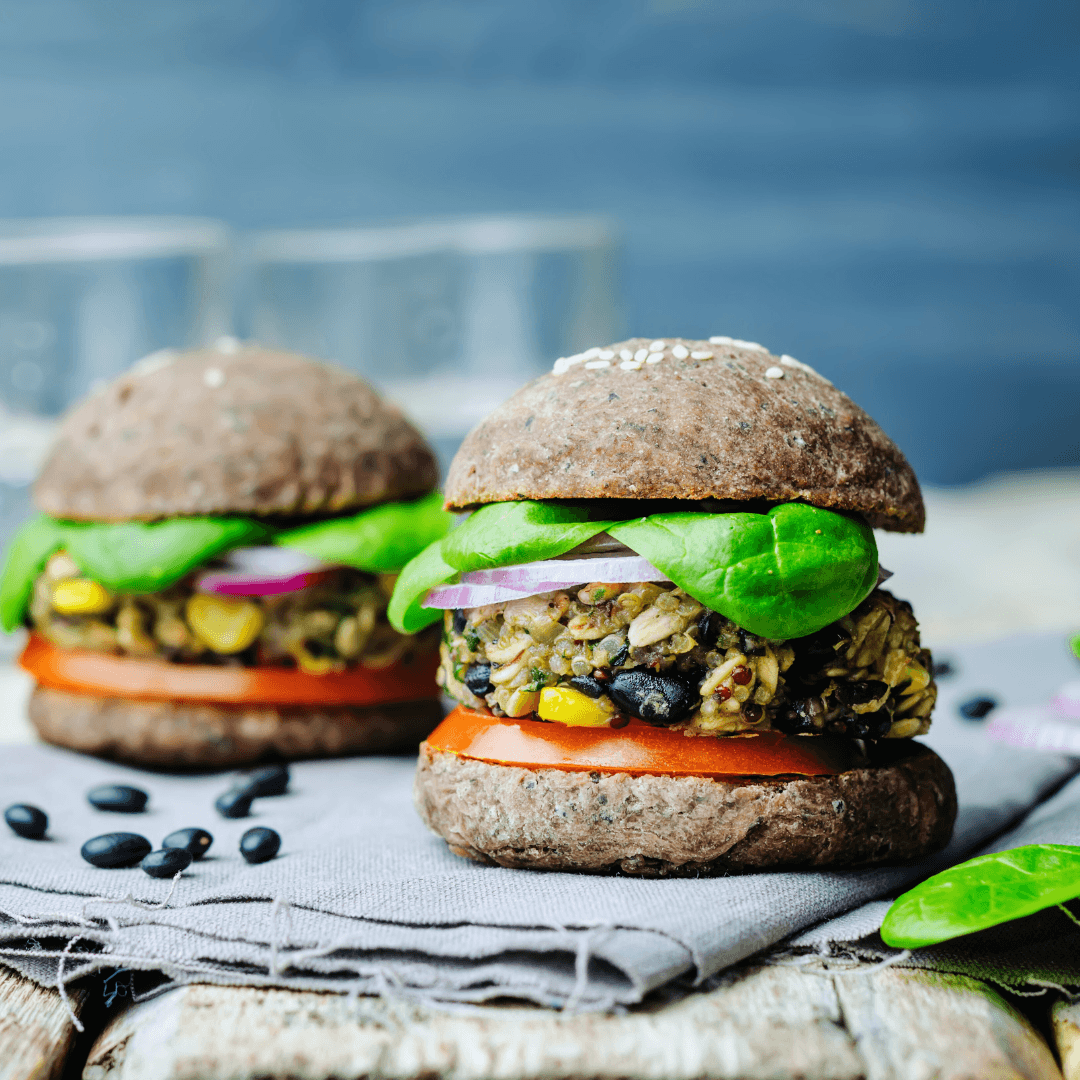
2. Quinoa And Black Bean Burger
These quinoa and black bean burgers are nutritious, satisfying, and bursting with flavour.
Prep time: 20 minutes | Cook time: 25 minutes | Total time: 45 minutes | Serving: 6 burgers
Ingredients
- Cooked quinoa: 1 cup
- Black beans: 1 can, drained and rinsed
- Red bell pepper: ½ cup, finely chopped
- Fresh cilantro: ¼ cup, chopped
- Garlic: 2 cloves, minced
- Ground cumin: 1 teaspoon
- Chilli powder: 1 teaspoon
- Sea salt and pepper to taste
- Olive oil: 1 tablespoon
- Whole-grain burger buns
- Toppings: lettuce, tomato, avocado, etc.
Method
- Mash black beans with a fork or potato masher until smooth in a large mixing bowl.
- Fill the bowl with the cooked quinoa, red bell pepper, cilantro, cumin, garlic, chilli powder, salt, and pepper. Blend until thoroughly blended.
- Create six equal parts of the mixture, then form each into a patty.
- Preheat the olive oil in a skillet over medium heat. Cook the patties on each side for 5–6 minutes or until thoroughly cooked and golden brown.
- Top the black bean and quinoa burgers with your preferred sauces and toppings and serve on whole-grain buns.
Nutritional Facts Of A Quinoa And Black Bean Burger (per serving)
- Calories: 240
- Total fat: 4g
- Saturated fat: 0.5g
- Cholesterol: 0mg
- Sodium: 320mg
- Total carbohydrates: 42g
- Dietary fibre: 9g
- Sugars: 2g
- Protein: 10g
Health Benefits Of A Quinoa And Black Bean Burger
Quinoa and black beans provide a complete protein source, while bell peppers and cilantro add vitamins, minerals, and antioxidants.
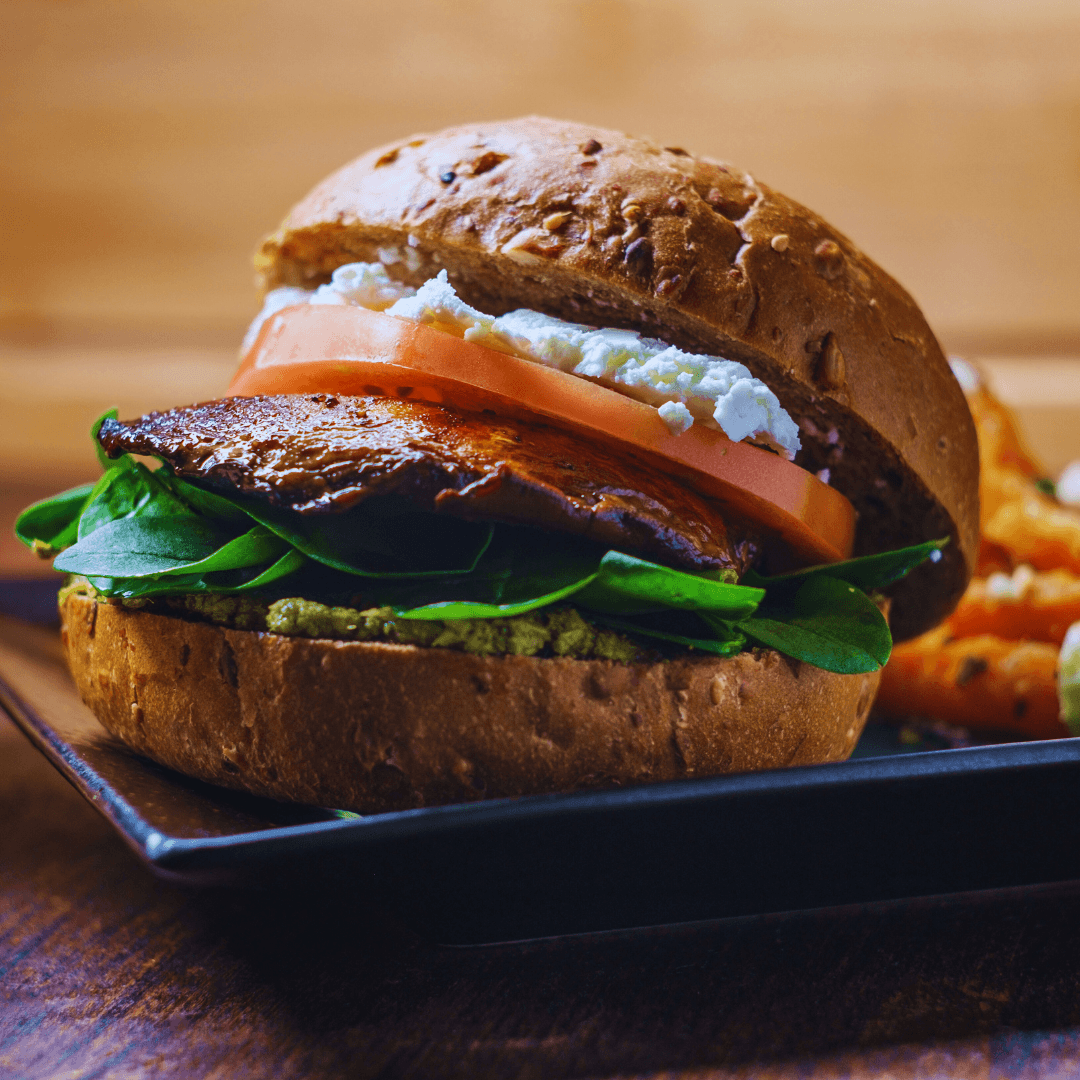
3. Portobello Mushroom Burger
This portobello mushroom burger offers a savoury and meaty alternative for burger enthusiasts.
Prep time: 10 minutes | Cook time: 15 minutes | Total time: 25 minutes | Serving: 2 burgers
Ingredients
- Portobello mushroom caps: 2 large
- Balsamic vinegar: 2 tablespoons
- Soy sauce or tamari: 1 tablespoon
- Garlic: 2 cloves, minced
- Olive oil: 1 teaspoon
- Sea salt and pepper to taste
- Whole-grain burger buns
- Toppings: spinach, caramelized onions, vegan cheese, etc.
Method
- In a shallow bowl, stir together olive oil, balsamic vinegar, soy sauce, minced garlic, salt, and pepper.
- Place portobello mushroom caps in the marinade, turning to coat evenly. Let marinate for 10 minutes.
- Warm a grill pan or skillet over medium-high heat. Place the marinated mushroom caps in the pan, gill side down.
- Cook mushrooms for 5-7 minutes per side or until tender and juicy, brushing with marinade occasionally.
- Serve the portobello mushroom burgers with your favorite toppings and condiments on whole-grain buns.
Nutritional Facts Of A Portobello Mushroom Burger (per serving)
- Calories: 140
- Total Fat: 3g
- Saturated Fat: 0.5g
- Cholesterol: 0mg
- Sodium: 420mg
- Total Carbohydrates: 21g
- Dietary Fibre: 5g
- Sugars: 5g
- Protein: 5g
Health Benefits Of A Portobello Mushroom Burger
Portobello mushrooms are low in calories and fat yet rich in antioxidants, vitamins, and minerals, making them nutritious for promoting overall health and well-being.
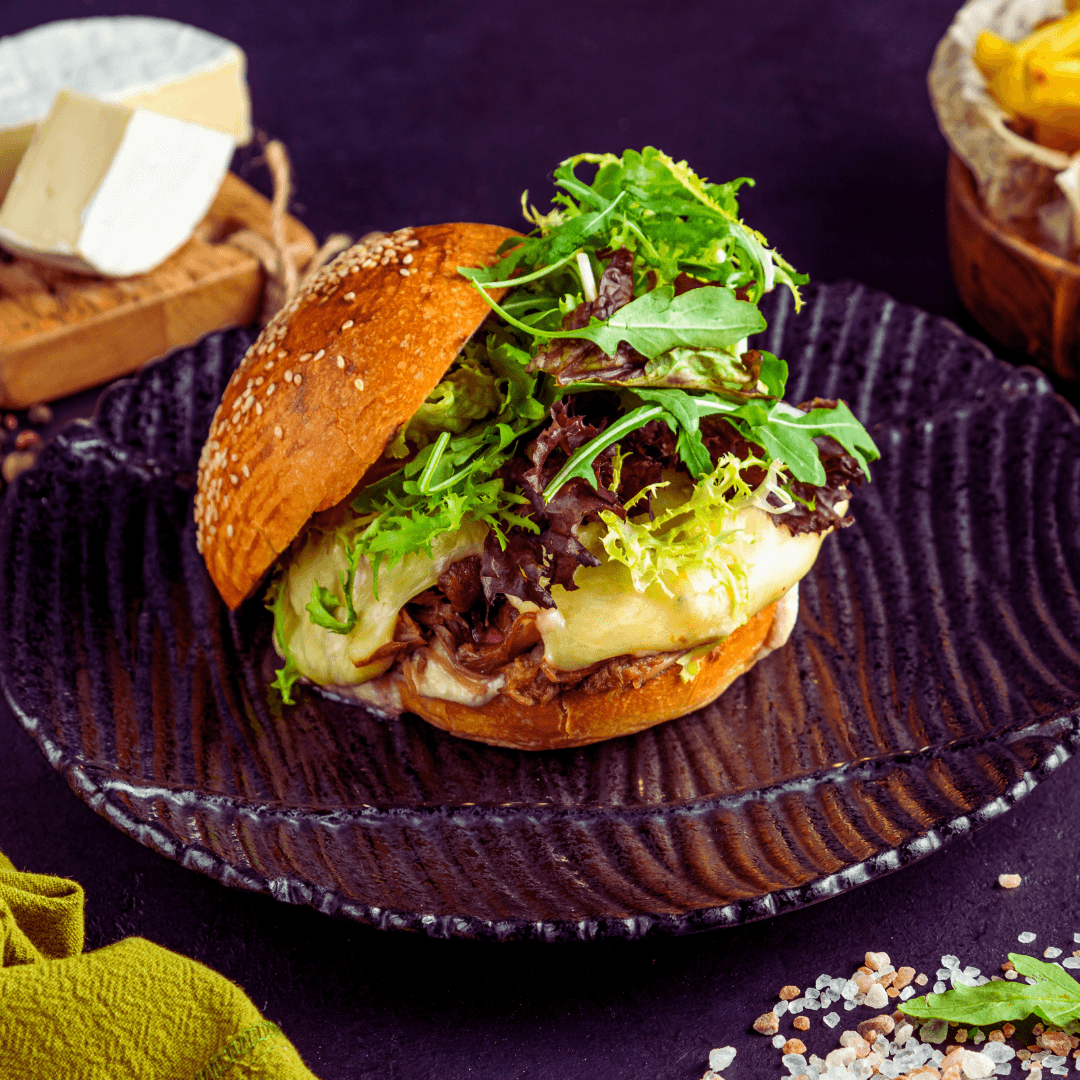
4. Lentil Walnut Burger
This lentil walnut burger combines the earthy flavour of lentils with the rich crunch of walnuts for a satisfying and nutritious meal.
Prep time: 15 minutes | Cook time: 30 minutes | Total time: 45 minutes | Serving: 4 burgers
Ingredients
- Green or brown lentils: 1 cup, cooked
- Walnuts: ½ cup, chopped
- Onion: ¼ cup, finely chopped
- Garlic: 2 cloves, minced
- Tomato paste: 2 tablespoons
- Soy sauce or tamari: 1 tablespoon
- Ground cumin: 1 teaspoon
- Smoked paprika: ½ teaspoon
- Sea salt and pepper to taste
- Olive oil for cooking
- Whole-grain burger buns
- Toppings: lettuce, tomato, avocado, etc.
Method
- Combine cooked lentils, chopped walnuts, onion, garlic, tomato paste, soy sauce, cumin, smoked paprika, salt, and pepper in a large mixing bowl. Mix until well combined.
- Mash the mixture using a potato masher or fork until it holds together but still has some texture.
- Divide the ingredients into four equal parts, then shape each into a patty.
- Preheat the olive oil in a skillet over medium heat. Cook the patties on each side for 5–6 minutes or until thoroughly cooked and golden brown.
- Top the lentil walnut burgers with your preferred sauces and toppings, and serve on whole-grain buns.
Nutritional Facts Of A Lentil Walnut Burger (per serving)
- Calories: 290
- Total Fat: 14g
- Saturated Fat: 1.5g
- Cholesterol: 0mg
- Sodium: 320mg
- Total Carbohydrates: 31g
- Dietary Fibre: 8g
- Sugars: 3g
- Protein: 13g
Health Benefits Of A Lentil Walnut Burger
Lentils are rich in protein, fibre, and folate, while walnuts provide heart-healthy fats and antioxidants.
This burger is a nutritious option for promoting satiety, supporting muscle health, and reducing the risk of chronic diseases.
Conclusion
In conclusion, vegan burgers offer a satisfying and nutritious alternative to traditional meat burgers. Each recipe showcases a diverse array of plant-based ingredients and flavours.
Whether crafted from chickpeas, quinoa, mushrooms, or lentils, these burgers provide a rich source of protein, fibre, vitamins, and minerals while lowering calories, saturated fat, and cholesterol.
Incorporating these wholesome creations into your diet supports your health and well-being and contributes to environmental sustainability and animal welfare. Every bite is a conscious choice for a healthier planet and a happier you.
I trust you enjoyed this article about the Vegan Burger Nutrition Facts Explained. Please stay tuned for more blog posts soon. Take care!
JeannetteZ
>>>Please click here to read my Vegan Travel Guides To World Destinations<<<
>>>Want To Learn How To Create Delicious, Cruelty-Free, Healthy AND 100% Vegan Meals? Try These Awesome Vegan Cooking Courses With A Free 7-DAY MEMBERSHIP<<<
Your Opinion Is Important To Me
Do you have thoughts, ideas, or questions? I would love to hear from you. Please leave me your questions, experiences, and remarks about the article on Vegan Burger Nutrition Facts Explained in the comments section below. You can also email me at Jeannette@LivingTheVeganLifestyle.org.
Disclosure
This post may contain affiliate links. I earn from qualifying purchases as an Amazon Associate and other affiliate programs. Please read my full disclosure.
Here are links to some of my favourite articles:
Authentic Vegan Recipes Of India
Best Vegan Brunch Recipe Ideas
Best Nonmeat Sources Of Vitamin B12
Best Vegan Barbecue Foods For Your Next Cookout
Animal Rights vs Animal Welfare

